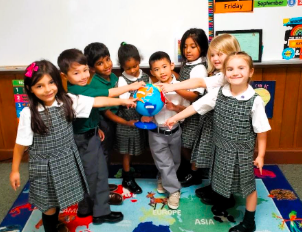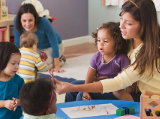The early years of a child’s life are more than just playtime and naps. They form the foundation for a lifetime of learning, behavior, and overall well-being. Research shows that early childhood education plays a significant role in shaping the cognitive, emotional, and social skills that children carry into adulthood.
Building Strong Foundations Early learning environments introduce children to essential skills like language development, basic math concepts, and social interaction. These early experiences stimulate brain development and help young learners build curiosity and a love for learning. Activities such as storytelling, problem-solving games, and collaborative play lay the groundwork for critical thinking and communication.
Developing Social and Emotional Skills Preschool programs also support emotional growth. Children learn how to express their feelings, work with others, and handle frustration. These skills are vital not only in school settings but throughout life, helping individuals build healthy relationships and adapt to different social environments.
Improving Academic Achievement Studies have shown that children who attend high-quality early learning programs tend to perform better in school. They are more likely to read at grade level by third grade, graduate from high school, and pursue higher education. These academic gains often lead to better career opportunities later in life.
Encouraging Lifelong Habits Early learning also promotes positive habits like curiosity, persistence, and responsibility. These traits, once formed, tend to remain stable over time and contribute to success in adulthood. When children are encouraged to explore, ask questions, and solve problems from a young age, they are more likely to carry those habits into their future endeavors.
Supporting Families and Communities High-quality early education doesn’t just benefit individual children—it also supports families and communities. When young children attend enriching programs, parents can better manage work and family responsibilities. Communities benefit from a well-prepared generation of learners who are ready to contribute positively to society.
Conclusion Investing in early learning is investing in the future. The skills and attitudes developed during the preschool years can have a profound impact on a child’s lifelong journey. By nurturing young minds early, we create the conditions for success not only in school, but in life.


